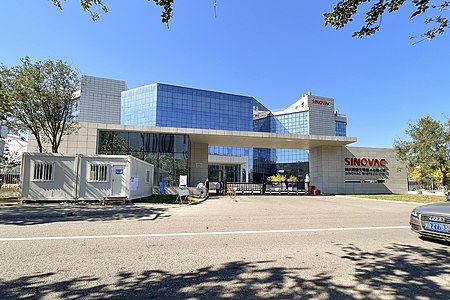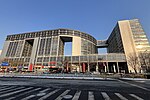Sinovac Biotech
Biopharmaceutical companiesBiotechnology companies established in 1999Biotechnology companies of ChinaCOVID-19 vaccine producersChinese brands ... and 5 more
Chinese companies established in 1999Companies listed on the NasdaqManufacturing companies based in BeijingMedical researchPharmaceutical companies of China

Sinovac Biotech Ltd. (Chinese: 科兴控股生物技术有限公司) is a Chinese biopharmaceutical company based in Haidian District, Beijing that focuses on the research, development, manufacture, and commercialization of vaccines that protect against human infectious diseases. The company was listed on the Nasdaq but the exchange halted Sinovac's trading in February 2019 due to a proxy fight. The company has faced bribery probes in China.
Excerpt from the Wikipedia article Sinovac Biotech (License: CC BY-SA 3.0, Authors, Images).Sinovac Biotech
裕景中街, Haidian District Shangdi
Geographical coordinates (GPS) Address Nearby Places Show on map
Geographical coordinates (GPS)
| Latitude | Longitude |
|---|---|
| N 40.031 ° | E 116.3003 ° |
Address
裕景中街
裕景中街
100193 Haidian District, Shangdi
Beijing, China
Open on Google Maps











